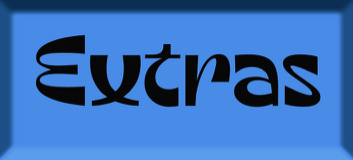






Genesis 35
1 Then God said to Jacob, “Go up to Bethel and settle there, and build an altar there to God, who appeared to you when you were fleeing from your brother Esau.”
2 So Jacob said to his household and to all who were with him, “Get rid of the foreign gods you have with you, and purify yourselves and change your clothes. 3 Then come, let us go up to Bethel, where I will build an altar to God, who answered me in the day of my distress and who has been with me wherever I have gone.”
4 So they gave Jacob all the foreign gods they had and the rings in their ears, and Jacob buried them under the oak at Shechem. 5 Then they set out, and the terror of God fell on the towns all around them so that no one pursued them. 6 Jacob and all the people with him came to Luz (that is, Bethel) in the land of Canaan. 7 There he built an altar, and he called the place El Bethel, because it was there that God revealed himself to him when he was fleeing from his brother.
8 Now Deborah, Rebekah's nurse, died and was buried under the oak outside Bethel. So it was named Allon Bakuth.
9 After Jacob returned from Paddan Aram, God appeared to him again and blessed him. 10 God said to him, “Your name is Jacob, but you will no longer be called Jacob; your name will be Israel. ” So he named him Israel.
11 And God said to him, “I am God Almighty; be fruitful and increase in number. A nation and a community of nations will come from you, and kings will be among your descendants. 12 The land I gave to Abraham and Isaac I also give to you, and I will give this land to your descendants after you.”13 Then God went up from him at the place where he had talked with him.
14 Jacob set up a stone pillar at the place where God had talked with him, and he poured out a drink offering on it; he also poured oil on it. 15 Jacob called the place where God had talked with him Bethel.
16 Then they moved on from Bethel. While they were still some distance from Ephrath, Rachel began to give birth and had great difficulty. 17 And as she was having great difficulty in childbirth, the midwife said to her, “Don't despair, for you have another son.”
18 As she breathed her last—for she was dying—she named her son Ben-Oni. But his father named him Benjamin.
19 So Rachel died and was buried on the way to Ephrath (that is, Bethlehem). 20 Over her tomb Jacob set up a pillar, and to this day that pillar marks Rachel's tomb. 21 Israel moved on again and pitched his tent beyond Migdal Eder.
22 While Israel was living in that region, Reuben went in and slept with his father's concubine Bilhah, and Israel heard of it.
Jacob had twelve sons:
23 The sons of Leah: Reuben the firstborn of Jacob, Simeon, Levi, Judah, Issachar and Zebulun.
24 The sons of Rachel: Joseph and Benjamin.
25 The sons of Rachel's servant Bilhah: Dan and Naphtali.
26 The sons of Leah's servant Zilpah: Gad and Asher. These were the sons of Jacob, who were born to him in Paddan Aram.
27 Jacob came home to his father Isaac in Mamre, near Kiriath Arba (that is, Hebron), where Abraham and Isaac had stayed. 28 Isaac lived a hundred and eighty years. 29 Then he breathed his last and died and was gathered to his people, old and full of years. And his sons Esau and Jacob buried him.
Gen 36
1 This is the account of the family line of Esau (that is, Edom). 2 Esau took his wives from the women of Canaan: Adah daughter of Elon the Hittite, and Oholibamah daughter of Anah and granddaughter of Zibeon the Hivite— 3 also Basemath daughter of Ishmael and sister of Nebaioth.
4 Adah bore Eliphaz to Esau, Basemath bore Reuel, 5 and Oholibamah bore Jeush, Jalam and Korah. These were the sons of Esau, who were born to him in Canaan.
6 Esau took his wives and sons and daughters and all the members of his household, as well as his livestock and all his other animals and all the goods he had acquired in Canaan, and moved to a land some distance from his brother Jacob. 7 Their possessions were too great for them to remain together; the land where they were staying could not support them both because of their livestock. 8 So Esau (that is, Edom) settled in the hill country of Seir.
9 This is the account of the family line of Esau the father of the Edomites in the hill country of Seir.
10 These are the names of Esau's sons: Eliphaz, the son of Esau's wife Adah, and Reuel, the son of Esau's wife Basemath. 11 The sons of Eliphaz: Teman, Omar, Zepho, Gatam and Kenaz. 12 Esau's son Eliphaz also had a concubine named Timna, who bore him Amalek. These were grandsons of Esau's wife Adah. 3 The sons of Reuel: Nahath, Zerah, Shammah and Mizzah. These were grandsons of Esau's wife Basemath. 14 The sons of Esau's wife Oholibamah daughter of Anah and granddaughter of Zibeon, whom she bore to Esau: Jeush, Jalam and Korah.
15 These were the chiefs among Esau's descendants: The sons of Eliphaz the firstborn of Esau: Chiefs Teman, Omar, Zepho, Kenaz,
16 Korah, Gatam and Amalek. These were the chiefs descended from Eliphaz in Edom; they were grandsons of Adah.
17 The sons of Esau's son Reuel: Chiefs Nahath, Zerah, Shammah and Mizzah. These were the chiefs descended from Reuel in Edom; they were grandsons of Esau's wife Basemath. 18 The sons of Esau's wife Oholibamah: Chiefs Jeush, Jalam and Korah. These were the chiefs descended from Esau's wife Oholibamah daughter of Anah. 19 These were the sons of Esau (that is, Edom), and these were their chiefs.
20 These were the sons of Seir the Horite, who were living in the region: Lotan, Shobal, Zibeon, Anah, 21 Dishon, Ezer and Dishan. These sons of Seir in Edom were Horite chiefs.
22 The sons of Lotan: Hori and Homam. Timna was Lotan's sister. 23 The sons of Shobal: Alvan, Manahath, Ebal, Shepho and Onam. 24 The sons of Zibeon: Aiah and Anah. This is the Anah who discovered the hot springs in the desert while he was grazing the donkeys of his father Zibeon.
25 The children of Anah: Dishon and Oholibamah daughter of Anah. 26 The sons of Dishon : Hemdan, Eshban, Ithran and Keran. 27 The sons of Ezer: Bilhan, Zaavan and Akan. 28 The sons of Dishan: Uz and Aran.
29 These were the Horite chiefs: Lotan, Shobal, Zibeon, Anah, 30 Dishon, Ezer and Dishan. These were the Horite chiefs, according to their divisions, in the land of Seir.
31 These were the kings who reigned in Edom before any Israelite king reigned: 32 Bela son of Beor became king of Edom. His city was named Dinhabah. 33 When Bela died, Jobab son of Zerah from Bozrah succeeded him as king. 34 When Jobab died, Husham from the land of the Temanites succeeded him as king. 35 When Husham died, Hadad son of Bedad, who defeated Midian in the country of Moab, succeeded him as king. His city was named Avith. 36 When Hadad died, Samlah from Masrekah succeeded him as king. 37 When Samlah died, Shaul from Rehoboth on the river succeeded him as king. 38 When Shaul died, Baal-Hanan son of Akbor succeeded him as king. 39 When Baal-Hanan son of Akbor died, Hadad succeeded him as king. His city was named Pau, and his wife's name was Mehetabel daughter of Matred, the daughter of Me-Zahab.
40These were the chiefs descended from Esau, by name, according to their clans and regions: Timna, Alvah, Jetheth, 41 Oholibamah, Elah, Pinon, 42 Kenaz, Teman, Mibzar, 43 Magdiel and Iram. These were the chiefs of Edom, according to their settlements in the land they occupied. This is the family line of Esau, the father of the Edomites.
44 More Hallmark Family Moments
God puts Jacob on the road again, this time to Bethel. On the road again, Jacob just cannot wait to get on the road again… sorry, fell into a song. This explains why there are so many Bethel church names out there. I wonder what Esau thinks about his brother not showing up. I would be thinking that Jacob has not changed a bit. Still tricky as a snake.
I love how Jacob described God as the God who traveled with him through times of distress. I know that God.
Jacob finally cleans the camp of idols. About time. They also change clothing and give up their hoops (hoops were already okayed in earlier verses – I think it was Rebekah who got the nose ring from Abraham). Lots of nice Amish girls probably were forbidden to wear earbobs over this. I looked up opinions on it and some think that the loops had pagan symbols on them. Sounds reasonable. I was also thinking of the Moses story where people melted down metal to make idols. Maybe it was to prevent that. No experts suggested that, but still. The items were buried under a tree. There is a cross analogy in that -taking sins to the tree.
Jacob has returned to the place of his covenant with God. He is recommitted and purified. Huge step for Jacob. He still is in conflict with his brother. God renames him Israel and confirms his covenant with Jacob.
Bethel is the name given to the place where Jacob builds the alter. But Bethel is already the name of the place. What gives? Bibleheads say Bethel means house of God – so this could be a signal of God's presence. It could also be a renewing of the relationship or a public confirmation of the name. Also, Jacob is renamed Israel twice. Some Bibleheads think this is two versions of the same story by different sources (thus some inconsistency). Others think “called” is more of a called out. I think this may play the same role as restating the covenant over and over again does. More of an affirmation than a change. That makes sense to me.
Rachel dies giving birth to Benjamin (her other son is Joseph). There is an irony here because Rachel really wanted sons more than anything. She is given a second son, but she dies in the process. It is really one of those, “why God?” moments. Also a reminder that following God's plan does not mean everything will be easy and lead to a happily ever after.
Ok, so she names the kid Ben-Oni – I am hearing Obi-Wan. Jacob is not a fan of the name either. He decided to change it to Benjamin. Everyone is getting renamed today. Ben-Oni means son of trouble. Benjamin means right hand son. I think it is a name upgrade – maybe Jacob did not want the kid to have the baggage of his mother's death on him.
Jacob has 12 sons. The eldest is Reuben (he would be heir apparent). But Reuben ends up sleeping with one of Jacob’s secondary wives. Gross. Sinful. And also might be a way to take over the family since new heads of family often did that when they took over. Later, Reuben will not be the one given the leadership of the family. This sexual sin was likely part of the equation.
The surprising part of the story is that Isaac is still alive at this point. I thought he was near the end chapters ago in the blessing scene. He lived to 108. And both Esau and Jacob are there to bury him. Awkward reunion.
In Gen 36, we then get a really boring overview of begats. This goes to show that Esau's line was blessed even though he was not the leader. It also gives historical context. We are led back to these family lines repeatedly throughout the OT. Make sure to memorize them. Just kidding.
Did I mention the name Basemath (V4) sounds like a replacement for common core? You are welcome. We are also told that Jacob moved away from his brother at some point. Probably wise. The hill country sounds pretty. Esau is the father of all Edomites. We are told the story of one descendant who located a hot spring. That sounds like something important to people living with water restrictions. I wonder if that is why he was made a chief.
We are even told the names of early kings of this land. At some point, Jobab from Termanites became king – we knew a guy named Termanites in the book of Job. Wonder if there is a relationship. If you think of Job as Israel undergoing suffering and the friends as other nations, it works. Just a random thought.
A few daughters are mentioned in the line-up. That is always interesting since it is unexpected. It is fun when God surprises us with His thoughts. Oholibamah is a mouth full – another baby name for the road less traveled.
